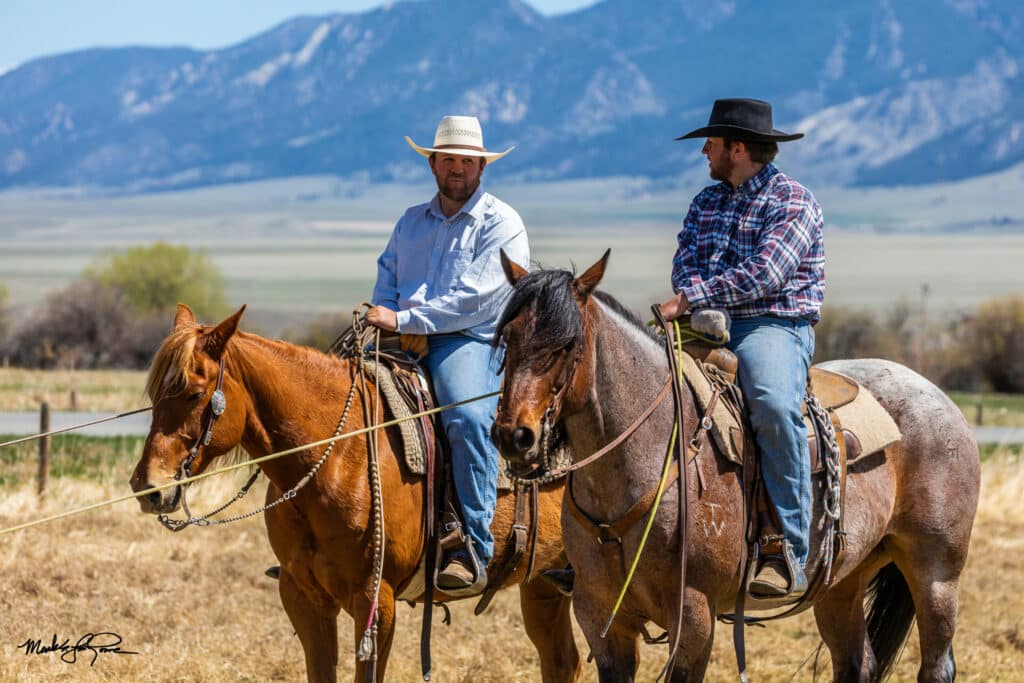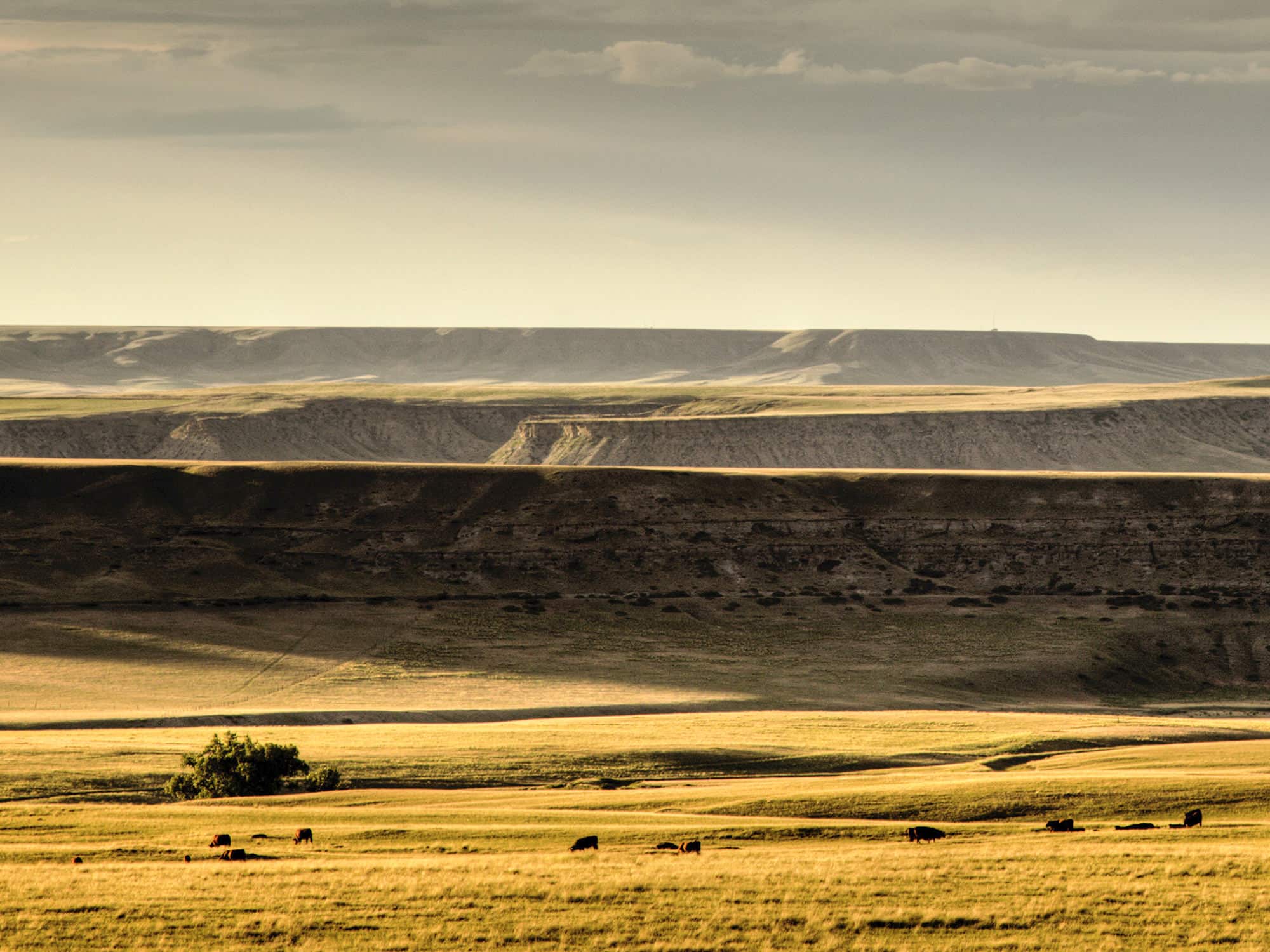Many landowners considering selling a Montana ranch encounter a wall of industry mystery when trying to make an informed decision about their property. Ranch and farmland real estate is more similar to selling a business than to selling an urban home. The transaction involves intricate legal, tax, and structural nuances, as well as operational considerations.
For many landowners, there are also complicated emotional ties and conversations surrounding family and the lifestyle changes that a sale represents. After countless discussions with landowners throughout my career, there are key insights and information about real estate industry mechanics that I believe every property owner contemplating a sale should know.
First, let me provide some context about where I’ve gained these insights. My name is Mike Swan, and I’m the managing Broker/Owner at Swan Land Company. I grew up in Southwest Montana, working on a sizable commercial cow-calf operation along the banks of the Jefferson River. This lifestyle shaped my sense of community and ingrained a deep-rooted sense of duty to give back. Buying and selling land in the American West is a seismic shift in the lives of both the seller and the buyer. I experienced this firsthand when my parents decided to retire and sell our family ranch. Going through that process provided me with insight into the emotional and logistical complexities involved in this life-altering change.
Since 2002, I’ve been working in real estate and have had the honor of handling large, complex, and multi-faceted transactions, such as the Broken O Ranch near Augusta and the Climbing Arrow Ranch (CA Ranch) in the Gallatin Valley—two of the largest transactions in the history of the West. I also regularly teach as a faculty keynote speaker for The Seminar Group, an organization that provides professional development seminars and conferences for professionals across industries as well as at Montana State University to the Dan Scott Ranch Management class.

Preparing to Sell
Taxes, Corporate Structure & Financial Planning
One of the most important conversations we have with families in our offices plays out like this — They have been contemplating selling for a significant amount of time and have reached a point where they are ready. They are in the process of interviewing brokers with the goal of signing a listing agreement. As we delve into the details, we quickly realize that to maximize their net in-pocket money from the sale and avoid triggering unnecessarily large tax bills, we need to pump the brakes.
Instead of proceeding with the listing, the next step becomes connecting them with a qualified tax advisor, accountant, and attorney. Ensuring that we’ve examined every possible aspect to minimize the tax impact. This often involves optimizing the corporate structure and engaging in proper gifting. Depending on the complexity, this process can sometimes take as long as a year or two.
If there’s one piece of advice I would give any landowner in Montana, it’s to initiate conversations with a few brokerages early on. Even if selling is just one of several options you’re weighing, it’s worth getting all the information you can. A good brokerage will have a network of qualified professionals they can refer you to. They can also provide valuable professional insights on tax recommendations that may have property value implications, such as conservation easements, gifting, and other estate planning tools. Ensure that the brokerages you reach out to are like Swan Land Company and specialize in ranch real estate.

Navigating Stake Holders & Setting Goals
Selling can mean a lot of different things to different landowners. Different goals have differing tax and process implications. For example, a 1031 Tax Deferred Exchange may be an important part of the planning process. Clearly articulating your goals and concerns, both financial and emotional, can provide critical groundwork to make sure the process is as smooth and satisfying as possible.
Key Points to Consider:
Goals:
What do you want life to look like after the sale of your property? Do these goals raise any considerations that should be taken into account in the transaction?
Stakeholders:
It is crucial to have a clearly articulated and discussed plan for the financial stakeholders in your property. While it may be clear-cut for some, in cases with family complexities, addressing all stakeholders’ concerns and wants adequately will significantly reduce friction later on. We prefer to have all of the stakeholders involved in the process from the beginning to ensure there are no surprises that may derail the sale later on.
Assets:
Determine what you want to take with you and what you want to sell with the ranch or property. Common assets often discussed in this category include cattle, equipment, vehicles, livestock panels, chutes, and other personal property.
Timeline:
While some of this is going to be at the mercy of the markets or your personal needs. There is some planning and industry knowledge that can help when discussing timelines and setting expectations.
- While we’ve successfully sold properties in all four seasons, there is a natural ebb and flow of intensity in the real estate industry. The warm, green months of summer are the peak season for showing properties to buyers. It’s also an ideal time to capture photos and videos of the properties.
- Operational Considerations – We understand the critical nature of seasonal and time-sensitive tasks on a ranch, whether it’s calving, crops, or seasonal management. There are numerous ways we’ve handled such considerations in the past to ensure the continuous operation of ranches through ownership transitions.

Pricing Your Ranch
Industry Challenges
Montana’s non-disclosure statute means that sale prices of real estate are strictly private. Unlike other states where sale data might be readily accessible via public databases, both the buyer and seller enjoy privacy.
While residential and commercial real estate prices rely on the MLS data of numerous ‘comparable’ transactions within a defined area, most land sales are not published to an MLS database. This significantly elevates the importance of a brokerage’s expertise, when it comes to their valuation of your property and knowledge of the current market trends.
The implications of this are significant — from pricing strategies to negotiations. Without publicly known benchmarks, assessing the market value requires numerous resources to conduct accurate research and project prices into markets lacking data, including a deep understanding of how land features impact a property’s value.
Positioning your Property with Price
Pricing land is one of real estate’s most important and challenging aspects. Done correctly, it will drive competitiveness during the initial bloom of attention when your property is relatively new to the market—often resulting in the highest final sale price for your land. If overpriced or impacted by market changes or challenges, you’ll need to rely on price adjustments and repositioning to drive the same attention, with more time and effort and in many instances, for less return.
In establishing a price point, we consider a multitude of factors in a comprehensive valuation process. These include location, size, resource availability, productivity, water rights, conservation easements, recreational amenities, structures, and market demand, ensuring a price reflective of your property’s true worth. A well-considered price balances competitive market presence to achieve the maximum financial return.
For Swan Land Company, our extensive experience is one of the most valuable assets in evaluating your property. We’ve been a part of hundreds of real estate transactions and have seen firsthand how markets and trends shift. We’ve been a party to what different properties sell for behind closed doors – there isn’t much about this industry that we haven’t seen. We use this in-depth understanding and proprietary research to guide our clients and provide accurate valuation data. Furthermore, our close working relationship with many of the Rocky Mountain West’s top appraisers assists us in obtaining confirmed sales prices and land classification values.
Montana Mechanics of Real Estate You Should Know
Before diving into the details of what a good brokerage and ranch real estate agent can do for you and how to interview them, there are a few nuances to Montana real estate law that warrant additional scrutiny.
The first is disclosure of compensation; Montana real estate laws require real estate agents to disclose how they will be compensated for their services. You’ll find this in your listing agreement. This includes any potential for “double dipping,” where an agent might receive compensation from both the buyer and the seller.
Dual agency occurs when a real estate brokerage represents both the buyer and the seller in the same transaction. Dual agency also occurs when two agents from the same brokerage are involved in the transaction, with one representing the buyer and the other representing the seller. This form of dual agency simply necessitates asking your agent how the brokerage handles confidentiality internally as a company in situations like this.

Interviewing Land Brokerage Companies
Just like we advise landowners during listing meetings, we highly recommend you interview multiple brokerages. This is going to be the team looking out for your interests, and navigating you through challenges and decisions. Many brokerages claim to work hard for their clients, so don’t be afraid to ask what that means and what services and deliverables that includes. It goes beyond a company doing a good job, it needs to feel like the right fit for you and your property.
-
Chemistry:
This might sound silly but you need to have chemistry with the agent you select because you are going to be spending some significant time with them. A seller and their listing agent will be working side by side throughout an extensive process from when the listing agreement is signed until the closing of the transaction and in some cases beyond that as well. As a seller, you should feel secure that your agent is in tune with your needs and goals and is looking out for your best interests during every step of the process.
-
Honesty:
Do you feel your agent is being transparent and honest with you throughout the process? You want an agent that will deliver not only the good news but the hard news as well. Your agent’s job is to provide you with honest information and feedback so you can make informed decisions.
-
Communication:
Is your agent an effective communicator? How they communicate and at what frequency is important. Whether the information is good or bad – as a seller you need to know about all aspects of the process and the information associated with the process so you can make decisions accordingly. Sometimes information can be hard to hear, but it is still important for you to know so it can guide you in the process.
-
Industry Knowledge:
Does your agent have a thorough understanding and working knowledge of the type of property you are potentially asking them to represent? What is their background? What kinds of properties have they previously sold? What is their experience negotiating like? See the “Choosing An Agent” segment below for more information.
-
Confidentiality:
Can your agent keep the information you share with them in confidence – confidential?
-
Commission Structure:
How is a buyer’s broker paid? What is the percentage of the commission? What are the terms and lengths of their exclusive listing agreements?
-
Cooperation With Buyers’ Brokers:
This is critical to understand. A good brokerage and listing agent will utilize the brokerage network to find you a buyer. They will never try to covet the listing and “double dip” on the sale by intentionally withholding the listing from the market while they attempt to find a buyer on their own to collect both sides of the commission. Make sure you ask the brokerages you interview about their working relationship with other brokerages.
-
References:
You have the right to request references. Good references go beyond buyers and sellers a brokerage has served. For example, title companies, attorneys, CPAs, past clients, Ranch Managers, contractors, etc. can give you a nuanced perspective on how a brokerage does business.
-
How are Showings Handled:
Is the listing agent present for all showings or do they merely give a buyer’s broker a map and cut them loose? What goes into a showing? Is the agent present for any and all showings? How much notice do they provide before a showing? Will they require the Seller to be present during the showing?
-
Due Diligence:
What level of due diligence material do they provide the buyer? What is included in it? Who prepares it and how is it compiled? If there is one bullet point you take from this list, this is the one. A quality due diligence is a master binder including all relevant reports, legal documents, research, and audit findings. It is critical infrastructure to a seamless sale process.
-
Listing Proposals:
What are they giving you in your listing proposal? Is it a custom proposal tailored to your property or a boilerplate document? Does it provide an estimated price range and reasoning? What does the proposed timeline look like?
-
Deliverables:
What is included with your listing? Photography? Videography & Cinematography if appropriate?
-
Marketing:
Do they have a multi-channel marketing plan? Are they meeting or exceeding Google core compliance standards with their website? How many listings are you competing with? What is their network like? What is the information contained in their brochure? Is it available in both digital and print formats?
-
Closing The Transaction:
Does the agent stay engaged until closing or pass it off to an assistant to coordinate the closing?

Choosing an Agent
The true worth of an agent emerges in the details— understanding the complexity of crops and cattle, the hatches when fishing, the nuances of resort, agribusiness, and investment. The deep kind of understanding that can only be developed by living it or loving it. A mastery of the mechanisms of real estate is critical but a nuanced understanding of the things that motivate buyers makes all the difference. We pick our people for their experiences, work ethic, and integrity. That’s what we expect from our agents and it’s what you should expect from yours. We encourage sellers to interview multiple brokerages and not get “pushed” into a listing agreement with a firm they are not totally and completely comfortable with. Your selection of a brokerage is critical to the process, be sure you vet them thoroughly.
Transparency and Agent Specializations
At our company, we prioritize transparency. To support this, we feature sold properties and highlight agent specializations on our website profiles. While all our agents have broad experience, specializations are areas where their expertise stands out.
Specialization Categories Include:
- Ranch
- Farm
- Agribusiness
- Recreational
- Investment
- Hunting
- Fishing
- Resort
- Investment
- Natural Resources
- Complex Transactions
- Luxury Residential
Whether you choose to sell with us or another accomplished brokerage, trust in your agent’s capability is crucial. Selling a ranch in Montana involves navigating a complex process, understanding industry complexities, and selecting the right brokerage and agent.
At Swan Land Company, we prioritize earning your trust, transparency in all we do, and effectively communicating with our clients throughout the process. With our personalized approach, expertise in ranch real estate, and commitment to exceptional service, we guide you from the kitchen table to the closing table.
Written By: Mike Swan | Specialties: Complex Transactions, Ranch, Farm, Agribusiness, Recreational and Investment

